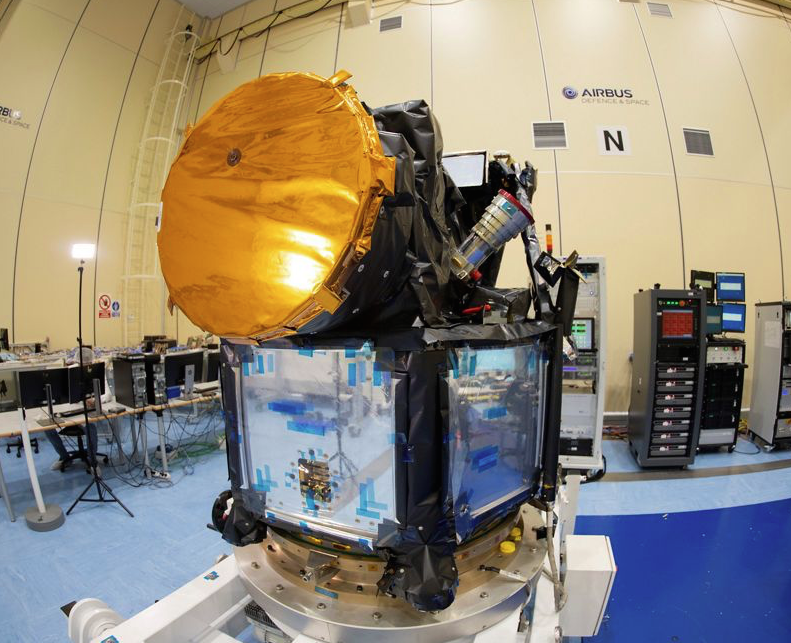Airbus Defence and Space has completed construction of the Cheops satellite, which is set for launch from Kourou later this year.
Airbus Defence and Space has completed construction of the Cheops satellite (Characterising Exoplanet Satellite), which is due to be launched on a precursor mission later this year. The European Space Agency (ESA) recently gave the green light at the Qualification and Acceptance Review for the Agency's first satellite dedicated to exoplanets.
For Spanish industry, the importance of Cheops goes beyond the search for new exoplanets; it is the first complete ESA mission to be led by Spain. Its launch comes at a key moment for the country as Seville will host the next ESA Ministerial Council at the end of 2019. To build the satellite a group of 24 companies from 11 European countries was selected, seven of which are Spanish.
Cheops is the first of ESA’s small missions, designed to be ready to fly within five years, and using proven technologies, to pave the way for bigger and more ambitious missions. It will seek to define the properties of planets orbiting nearby stars.
Airbus will use the time until launch to recheck the spacecraft, upload the latest version of software, carry out simulations for the Launch Early Operation Phase manoeuvres and refine the procedures for In Orbit Commissioning. Airbus involvement goes beyond the LEOP and IOC phases and official delivery of the satellite, by providing support for control of the satellite from the ground and maintenance during the operational phase.
The Cheops mission will analyse, for at least three and a half years (design lifetime), the exoplanets’ transit when passing in front of their stars. It will operate in a sun-synchronous orbit, at an altitude of 700km. The satellite is on schedule for launch between 15 October and 14 November 2019, on board a Soyuz launcher from the European Space Port in Kourou.
Cheops is a precursor mission. Data from the spacecraft will be used to generate a list of the most promising exoplanets in terms of their ability to sustain life as we know it. Future ESA missions (Plato and Ariel) that will pursue the study of exoplanets beyond the next decade.

